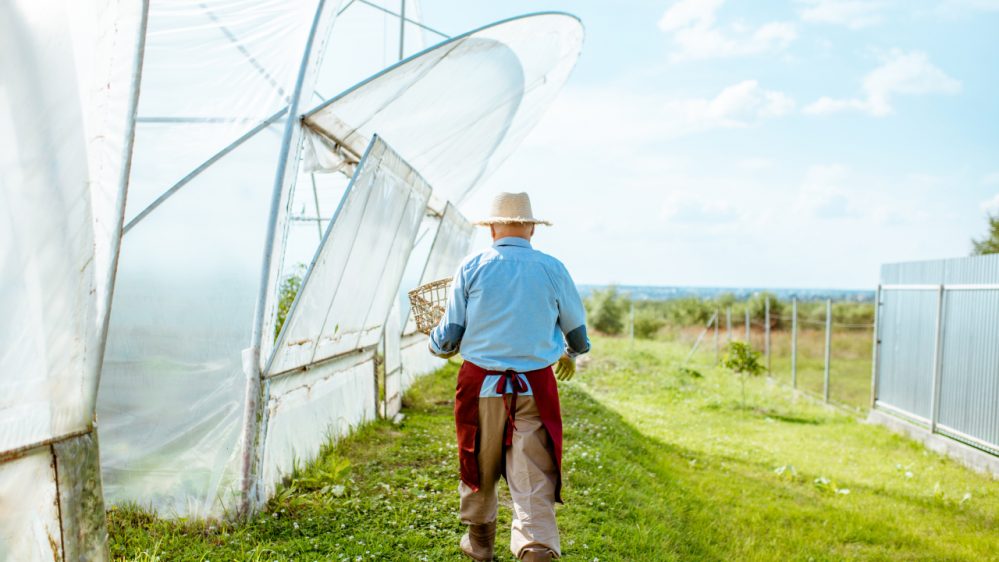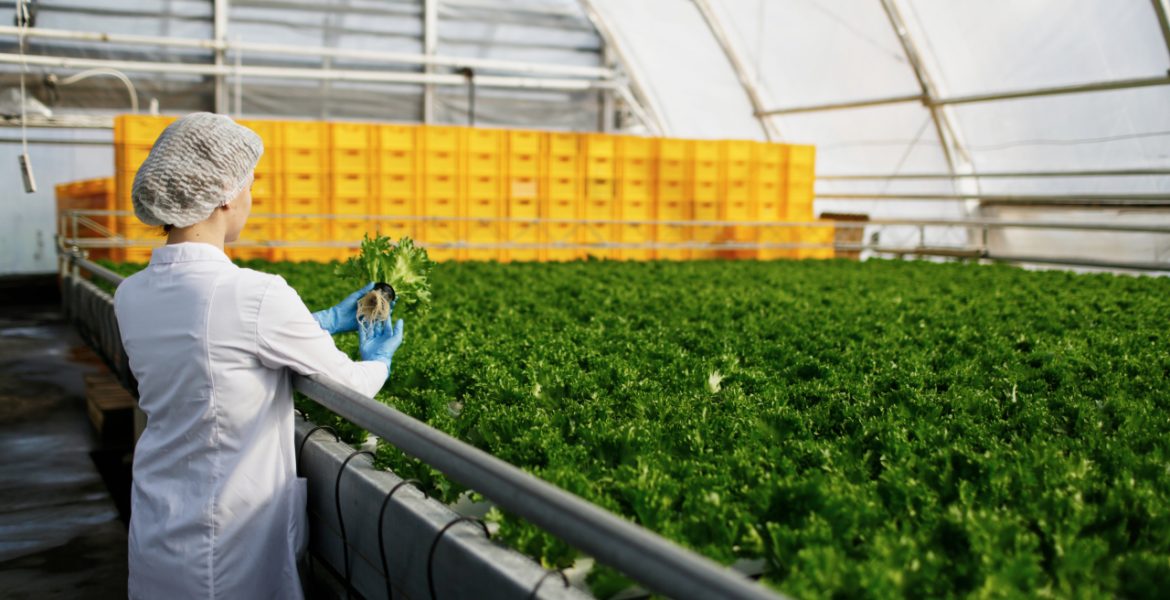If you’ve ever asked yourself, ‘What is an agronomist?’ then this guide is for you. Ideal for those interested in plants, agriculture, and problem-solving, a career as an agronomist offers a unique blend of fieldwork and science. We delve into the life of an agronomist, the exciting field of agronomy, and future job prospects.
What Is an Agronomist?
An agronomist is a specialist in agronomy, the science and practice of soil management and field crop production. Their role encompasses the study and management of plant genetics, plant physiology, meteorology, and soil science. They’re tasked with the responsibility of analyzing crops to discover solutions for treating illnesses, promoting growth, and enhancing quality.
In essence, agronomists serve as the vital link between farmers and agricultural researchers, transferring innovative solutions to enhance farming operations.
What Does an Agronomist Do?
 Now let’s see more deeply into what is the role of an agronomist. The role of an agronomist may change from day to day, depending on the agronomy sector. As an agronomist, you may be asked to do the following tasks:
Now let’s see more deeply into what is the role of an agronomist. The role of an agronomist may change from day to day, depending on the agronomy sector. As an agronomist, you may be asked to do the following tasks:
- Conduct experiments
- Collect and analyze data
- Develop new methods
- Transfer information
Below, you have detailed information on what each task includes.
Experiments
Experiments are carried out by agronomists to find the best strategies for improving crop quality. Agronomists help farmers grow the finest crops possible, such as corn, cotton, soybeans, and wheat, using the results of their research.
Data collection
The second phase includes collecting and analyzing the data. An agronomist is expected to think critically and solve issues concerning the cultivation of crops. This task takes place in the lab.
Developing new methods
After the data has been collected, an agronomist is responsible for developing strategies to overcome the problem, if any are detected. However, this is not an individual task, as it includes group work and speaking to other peers to develop an effective solution. If other peers are not included, the agronomist compares and researches scientific and reference books.
Transfer the information
Lastly, an agronomist will give presentations and talks about their results and promote their ideas to farmers who may apply the material for their harvests after they have written their study.
What Does the Workplace of an Agronomist Look Like?
An agronomist may work in a lab, a farm, or a research center. They’ll most likely visit farms to evaluate crops, soil, and other environmental concerns. If you work as an agronomist, you’ll probably travel frequently and spend at least some of your time outdoors, which may need protective apparel such as caps and sunglasses.
How to Become an Agronomist
 Agronomy can be pursued in various ways, although most of them require a bachelor’s degree or equivalent certification in a field such as biology, agriculture, or ecology. Here’s a follow guide on how to become an agronomist.
Agronomy can be pursued in various ways, although most of them require a bachelor’s degree or equivalent certification in a field such as biology, agriculture, or ecology. Here’s a follow guide on how to become an agronomist.
Pursue a bachelor’s degree
The majority of employers require a bachelor’s degree. To start a career in agronomy, you need a bachelor’s degree in one of the following related subjects:
- Biology
- Ecology
- Soil science
- Agriculture
- Crop and plant science
These subjects mostly include modules on agronomic research.
Gain experience
To increase your chances of finding an excellent career after graduation, gain as much practical experience working in an agricultural setting as possible. Work experience may be available as part of your institution or training center education. Even if it isn’t part of the curriculum, they may offer a job service that may assist you in finding relevant possibilities, especially if you are attending an agricultural institution. You can also use QR Codes to quickly access job portals or agricultural programs.
Explore outside the courses
If you don’t have the opportunity to get hands-on experience during your education, you should strive to do so during your vacation. You may go to local farms or call them to see if there is any extra employment available during the summer or if you could shadow a farm manager. You might also be able to locate volunteer activities in your region that will allow you to obtain hands-on experience working in agriculture.
Apart from these three steps, you can strive for other routes to become an agronomist, such as following courses, training schemes, or building a strong networking circle.
Career Paths Available for an Agronomist
Many agronomists prefer to specialize in a specific discipline, such as precision farming or formulating nutrition schemes for certain crops. Depending on your employer, you may be given thorough product-specific training to expand your knowledge base.
In the agricultural industry, agronomists may work for government agencies, research institutions, or commercial businesses in the following career options:
- Agronomy sales
- Crop consultant
- Crop scout
- Crop managers (farm managers)
- Farm insurance agents
- Managers of farm service centers
- Seed analysts
- Soil testing technicians
- Seed and grain marketing experts
- Seed and grain inspectors.
Salary and Job Outlook of an Agronomist

The average estimated salary for an agronomist in the United States is $64,815 per year. The most essential criterion in establishing the wage is the level of experience. Naturally, the longer you have worked, the higher your pay will be. In the U.S., agronomist wages range from $43K, the lowest, to $96K, the highest.
Based on recent data, the employment of agronomists will grow by 8% over the next decade, faster than the average for other occupations.
The Bottom Line
In conclusion, agronomists play an essential role in shaping a sustainable future by enabling us to feed the world while also protecting and revitalizing our farmlands. With diverse career paths, a sustainable sector, and the opportunity to make a positive impact, embarking on a career as an agronomist is both rewarding and fulfilling. Whether you have a green thumb or a knack for science, this profession offers ample room for growth, innovation, and making a difference.
Are you inspired to explore the possibilities that await in agronomy? Take the first step towards this exciting career by furthering your education and connecting with professionals in the field. If you’re already an aspiring agronomist, we’d love to hear about your experiences. Share your journey in the comments below, and let’s cultivate a community passionate about agriculture and sustainability!
Frequently Asked Questions
What is an agronomist?
An agronomist is a specialist in agronomy, which involves the science and practice of soil management and field crop production. They focus on helping farmers increase yield and quality by analyzing crops and soil, conducting experiments, and recommending solutions to improve crop health and productivity.
What does an agronomist do on a daily basis?
On a daily basis, an agronomist might conduct field visits to assess crop health, collect soil samples for analysis, conduct experiments on crop yield and quality, consult with farmers, and develop strategies for soil and crop improvement. The role can be varied and might also involve giving presentations or writing reports.
What educational qualifications are needed to become an agronomist?
To become an agronomist, you typically need a bachelor’s degree in agronomy, agriculture, soil science, or a related field. Some agronomists also pursue master’s degrees or PhDs to specialize in a specific area of agronomy.
Is agronomy a good career choice?
Yes, agronomy can be a rewarding career choice for individuals who are passionate about agriculture and sustainability. With the increasing global population and the need for sustainable farming practices, agronomists are in demand to help ensure food security and environmental conservation.
Where do agronomists work?
Agronomists can work in various settings including farms, agricultural research centers, government agencies, and educational institutions. They often spend time both in the field assessing crops and in labs analyzing data.
How much can an agronomist earn?
The salary of an agronomist can vary depending on factors like location, level of education, and experience. In the U.S., for example, the average salary for an agronomist is around $72K per year.
Can agronomists work internationally?
Yes, agronomists can work internationally. Since agriculture is a global industry, there are opportunities for agronomists to work in different countries and environments, helping to solve diverse agricultural challenges.
What are some specializations within agronomy?
Within agronomy, professionals can specialize in areas such as soil science, plant genetics, crop management, sustainable agriculture, and precision farming, among others.
How do agronomists contribute to sustainable farming?
Agronomists play a key role in sustainable farming by developing and promoting practices that increase crop yield and quality while minimizing environmental impact. This includes optimizing the use of natural resources, promoting biodiversity, and advising on the responsible use of fertilizers and pesticides.
Can I become an agronomist without a degree?
While a degree is generally required for most agronomist positions, it’s possible to gain entry into the field through experience and on-the-job training, particularly in entry-level positions. However, advancing in the field usually requires formal education.


